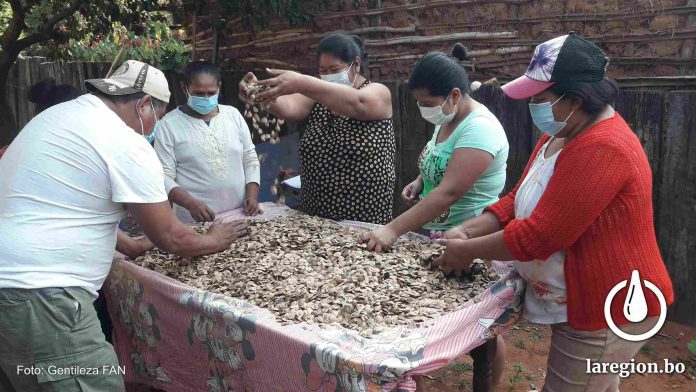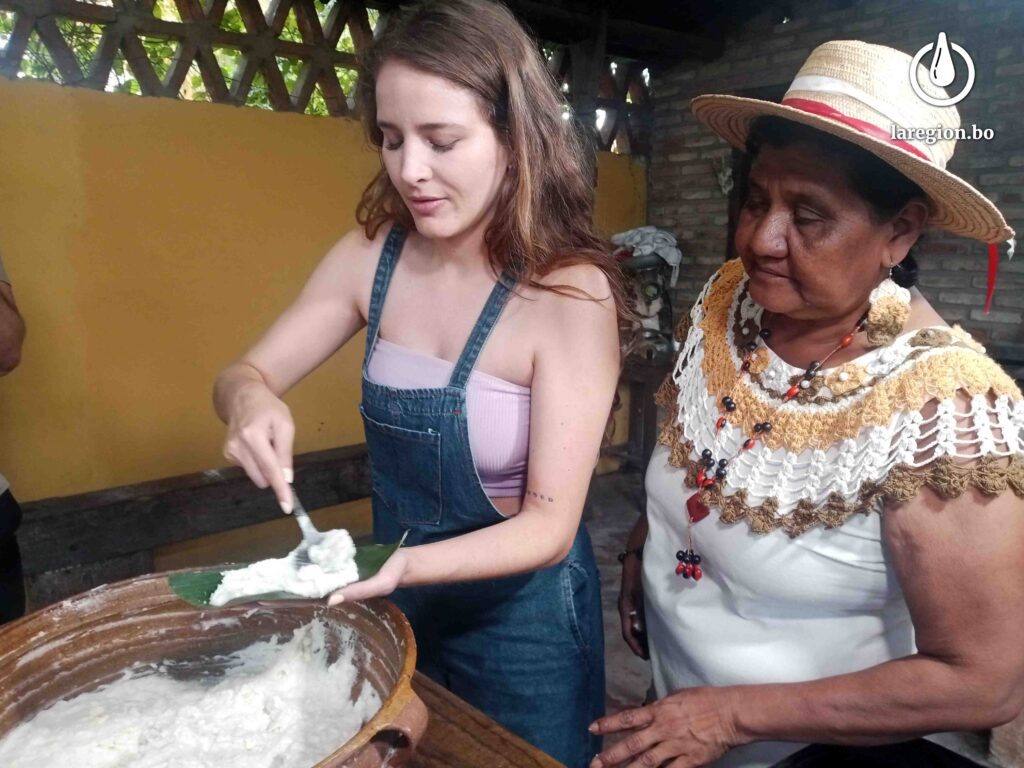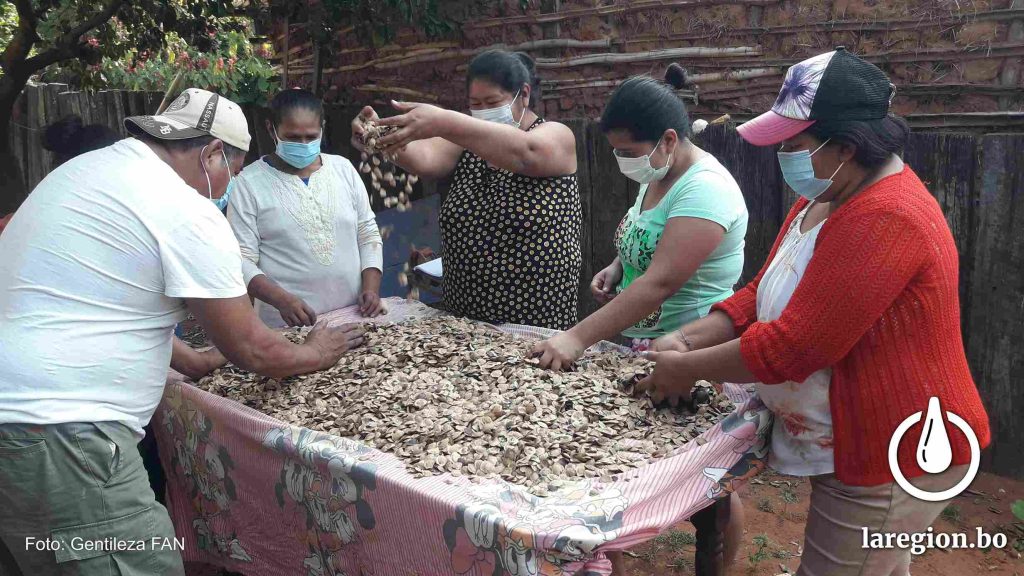
65 kilometers from San José de Chiquitos, Santa Cruz, the Ipias community formed an association to extract oil from the seeds of peso, a wild fruit in the area. Those dedicated to the trade say that collection is slow, not only because the seeds are in the forest, but also because many times, after walking for kilometers under the hot sun, it turns out that the seeds have rotted and, therefore, are not useful.
These Chiquitano ancestors used this oil to treat respiratory ailments. Community leader Carlos Chuvé Casupá said the data was used during the Covid-19 pandemic. “We are not suffering from the epidemic,” he said with great confidence.
With the sustainable use of these seeds, communities like Carlos have come to care for the Chiquitano forest, so giving it value so that they can continue this beneficial and silent work remains a challenge.

To support this work and protect nature, Melimiel, a honey production company, has signed an alliance to acquire this and other oils to produce a premium blend between the bee elixir and the natural wealth of Chiquitana.
A sustainable mix
The result is a flavor combination packaged in four jars, each containing bitter pie, pesto, pineapple passion fruit, maca, turmeric and ginger, and sustainably produced honey.

The goal is to achieve exclusive production and be able to export. In order to achieve this goal, Melimiel chose to build alliances with communities and assign sufficient economic value to its products, especially copaipos and pesos. Furthermore, all this is managed by the Friends of Nature Foundation (FAN), which works with nature-based value chains, together with the Spanish-Bolivia Cooperation (Aecid), the European Union and the Swedish Embassy.
This incentive is important for people like Érika Pérez Tomichá, who works with her husband to extract Cuban wine in the Yorororobá community of Roboré.
“We are an association of ten people. The men collect and bring the oil, we filter and package it and then transport it to the market,” she explains.

Unlike their ancestors, today’s Chiquitanos no longer need to cut down trees to extract oil, but instead use sustainable drilling techniques.
Fire, a huge threat
According to reports, although the Erica community has not been affected by fires this year, fires have broken out nearby in previous years, such as 2019 and 2022.
This has resulted in a significant reduction in available trees so that only 117 are currently available.

“Even so, expectations are high and we have to meet their demands so that our products can become known in other countries. Currently, they ask us for one liter of water per month,” the woman said.
For the locals, Kupai Po is very effective in treating coughs, colds, bronchitis, foot fungus and also has anti-inflammatory properties.


